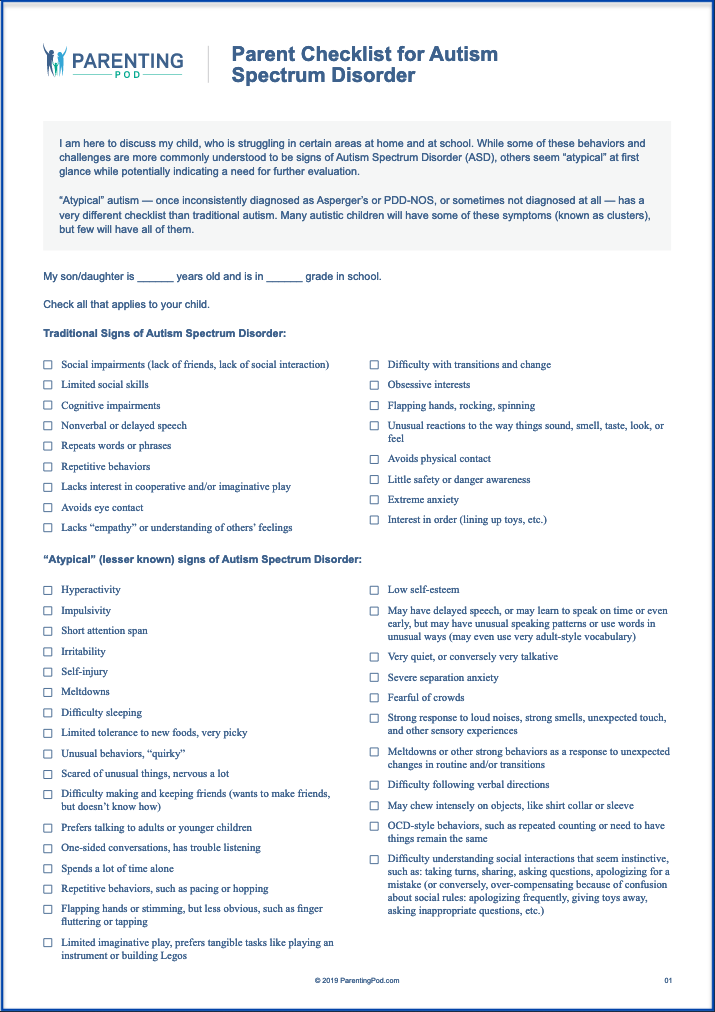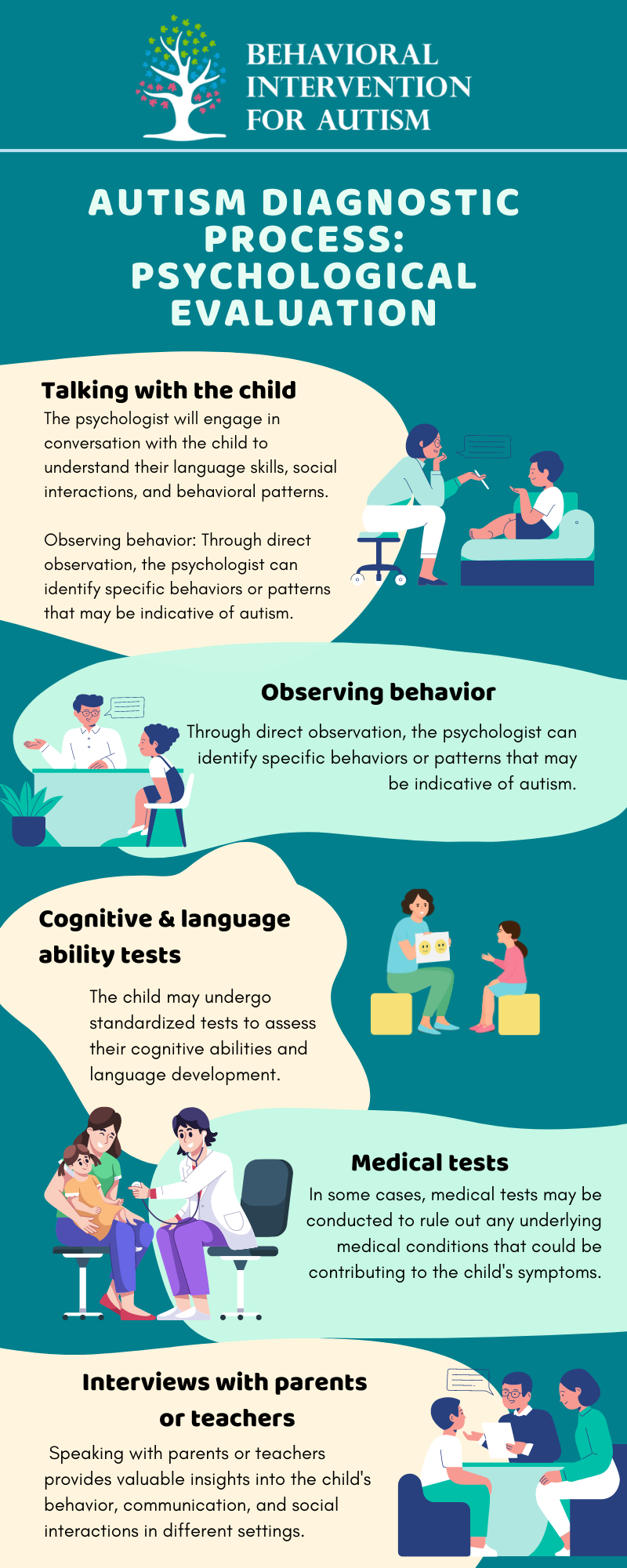What happens when working with an Autism Behavioral Therapy practitioner
What happens when working with an Autism Behavioral Therapy practitioner
Blog Article
Key Indicators and Signs to Recognize in People With Behavior Autism
When you come across somebody with behavior autism, recognizing key indicators and signs is necessary. Additionally, sensory sensitivities can lead to frustrating experiences.
Challenges in Social Communications
When you interact with someone on the autism spectrum, you might observe they have a hard time with social cues and communication. These difficulties can make social interactions feel overwhelming for them. You may see them avoiding eye get in touch with or standing too close or as well much away during discussions, which can develop misconceptions. They might not select up on body movement or facial expressions, making it harder for them to determine exactly how others are really feeling.
When they do involve, they could talk regarding their rate of interests in terrific information without seeing if you're interested. Comprehending these obstacles can aid you come close to interactions with compassion and perseverance, cultivating a more comfortable setting for both of you.
Trouble With Verbal and Non-Verbal Interaction

Non-verbal interaction can be much more challenging. You could see a lack of eye get in touch with or minimal usage of gestures, which can make interactions really feel awkward. Face expressions may not always align with the discussion, resulting in confusion about their feelings. Acknowledging these signs is crucial, as it assists you better support and engage with individuals on the autism spectrum. By understanding their interaction obstacles, you can promote more purposeful connections and give a more supportive setting.
Repeated Actions and Routines
Communication obstacles usually accompany other indicators of autism, such as repetitive actions and a strong choice for routines. You might discover that individuals with autism often participate in certain, repetitive actions, like hand-flapping, rocking, or repeating expressions. These habits can offer comfort and a sense of control in an often overwhelming world.
When they adhere to an organized timetable,Routines are equally vital; numerous people flourish. You may discover that modifications to these regimens can bring about substantial distress. As an example, if they have a daily routine of consuming morning meal at a specific time or following a certain route to school, any disruption can cause stress and anxiety.
Acknowledging these patterns aids you recognize their actions and provide support. By accommodating their requirement for routine and allowing repetitive activities, you can develop a more comfy setting that alleviates their obstacles.
Sensory Sensitivities

Common Sensory Triggers
Sensory sensitivities can substantially impact daily life for people with autism, as particular stimulations commonly cause overwhelming responses. Typical sensory triggers include loud sounds, intense lights, and strong smells. You may observe that unexpected sounds, like alarms or alarm systems, cause anxiousness or distress. Fluorescent illumination in stores can really feel unpleasant and severe. Appearances can likewise play a considerable duty; rough textiles or particular food appearances might be excruciating for you. In addition, crowded locations can bewilder your detects, making it tough to relax or concentrate. Understanding these triggers can assist you handle your setting better. By knowing what impacts you, you can take actions to lessen discomfort and improve your everyday experiences.
Behavior Reactions Described
Comprehending your behavioral feedbacks to sensory sensitivities is important, as they commonly reveal exactly how you connect with the world. You might observe that certain audios, lights, or textures overwhelm you, leading to anxiety or pain. When faced with these stimuli, you might take out, cover your ears, check these guys out or perhaps respond aggressively. These responses aren't simply peculiarities; they're your method of managing overstimulation. You might likewise discover yourself seeking particular sensory experiences, like deep pressure or silent environments, to assist ground on your own. Identifying these patterns aids you recognize your requirements much better and can guide just how you interact them to others. By recognizing your sensory level of sensitivities, you can function towards developing an environment that feels more manageable and comfy for you.
Coping Strategies Overview
Identifying your sensory level of sensitivities is simply the very first step; currently it's time to discover coping methods that can help you handle those experiences properly. Start by producing a sensory toolkit customized to your requirements. This could consist of noise-canceling earphones, fidget playthings, or relaxing scents. Establishing an organized routine can likewise provide predictability, minimizing anxiousness around sensory overload. Take breaks in a silent space to collect yourself when you feel overloaded. Exercising mindfulness strategies such as deep breathing can aid ground you in the moment. Additionally, interact your requirements with those around go to these guys you; having encouraging family and friends can make a massive distinction. Bear in mind, finding what functions best for you may take some time, so be patient and open to trying new strategies.
Limited Rate Of Interests and Focus
While many people develop a wide variety of passions, those with autism often demonstrate restricted passions and an extreme emphasis on specific subjects. You could observe that someone with autism can invest hours diving right into their preferred subject, whether it's a certain sort of train, a specific motion picture, or a clinical principle. This extreme emphasis isn't just a leisure activity; it can become a central component of their identity and social communications.
You might find that discussions focus on these passions, and they might struggle to take part in broader topics. For them, these focused passions offer convenience and a sense of proficiency. While it's essential to encourage expedition of brand-new topics, valuing their enthusiasms is just as necessary. By understanding and recognizing these restricted interests, you can promote a supportive atmosphere where they really feel valued and comprehended, permitting even more meaningful connections and communications.
Psychological Policy Troubles
People with autism often face challenges in emotional regulation, which can be influenced by their intense focus on particular interests. You might discover that when an individual is deeply participated in a favored task, they can experience strong feelings, whether exhilaration or frustration. This intensity sometimes makes it hard for them to shift gears or handle their sensations when things don't go as prepared.

Irregularity in Developing Milestones
When it comes to developmental landmarks, you'll see that individuals with autism usually show a variety of variability. Some might hit turning points on time, while others may delay behind or progression at a different speed. You might see a child stand out in language abilities however battle with social communications. This incongruity can be confusing, as conventional criteria don't constantly use.
It's necessary to recognize that each person's trip is one-of-a-kind. Some might create complicated abilities early, only to face challenges later on. Others might take longer to attain standard landmarks but then thrive in specific locations. Observing these patterns can aid you recognize their staminas and requires much better.
Regularly Asked Concerns
How Is Autism Detected in Children and Adults?
To detect autism in kids and adults, experts examine behavior, communication abilities, and social interactions. They frequently utilize standard tests, interviews, and monitorings to figure out if an individual fulfills the requirements for autism spectrum disorder.
Exist Various Kinds Of Autism Spectrum Disorders?
Yes, there are various kinds of autism range problems, including Asperger's syndrome and prevalent developing disorder-not or else defined. Each type varies in seriousness and attributes, so recognizing these differences can assist you better assistance individuals with autism.
What Therapies Work for Individuals With Autism?
When thinking about reliable therapies for people with autism, you'll find choices like Applied Behavior Analysis, speech treatment, and occupational therapy. Each strategy can assist improve communication, social abilities, and day-to-day functioning customized to specific needs.
Can People With Autism Lead Independent Lives?
Yes, people with autism can lead independent lives. With the best support, abilities training, and sources, you can aid them establish self-sufficiency, manage day-to-day tasks, and thrive in various atmospheres, cultivating their independence.
Just How Can Households Support Liked Ones With Autism?
You can sustain your liked ones with autism by creating a structured environment, motivating their passions, practicing persistence, cultivating interaction, and promoting social skills. Commemorate their success, no matter how little, and construct a supportive community.
Although numerous individuals on the autism spectrum can understand and make use of language, they often face significant challenges with both non-verbal and spoken interaction. Identifying these indicators is crucial, as it aids you far better support and engage with people on the autism range. You may observe that individuals with autism typically engage in particular, repeated actions, like hand-flapping, shaking, or duplicating phrases.Sensory sensitivities can substantially influence day-to-day life for people with autism, as specific stimuli typically cause frustrating reactions.When it comes to developmental milestones, you'll observe that people with autism typically show a wide array of irregularity.
Report this page